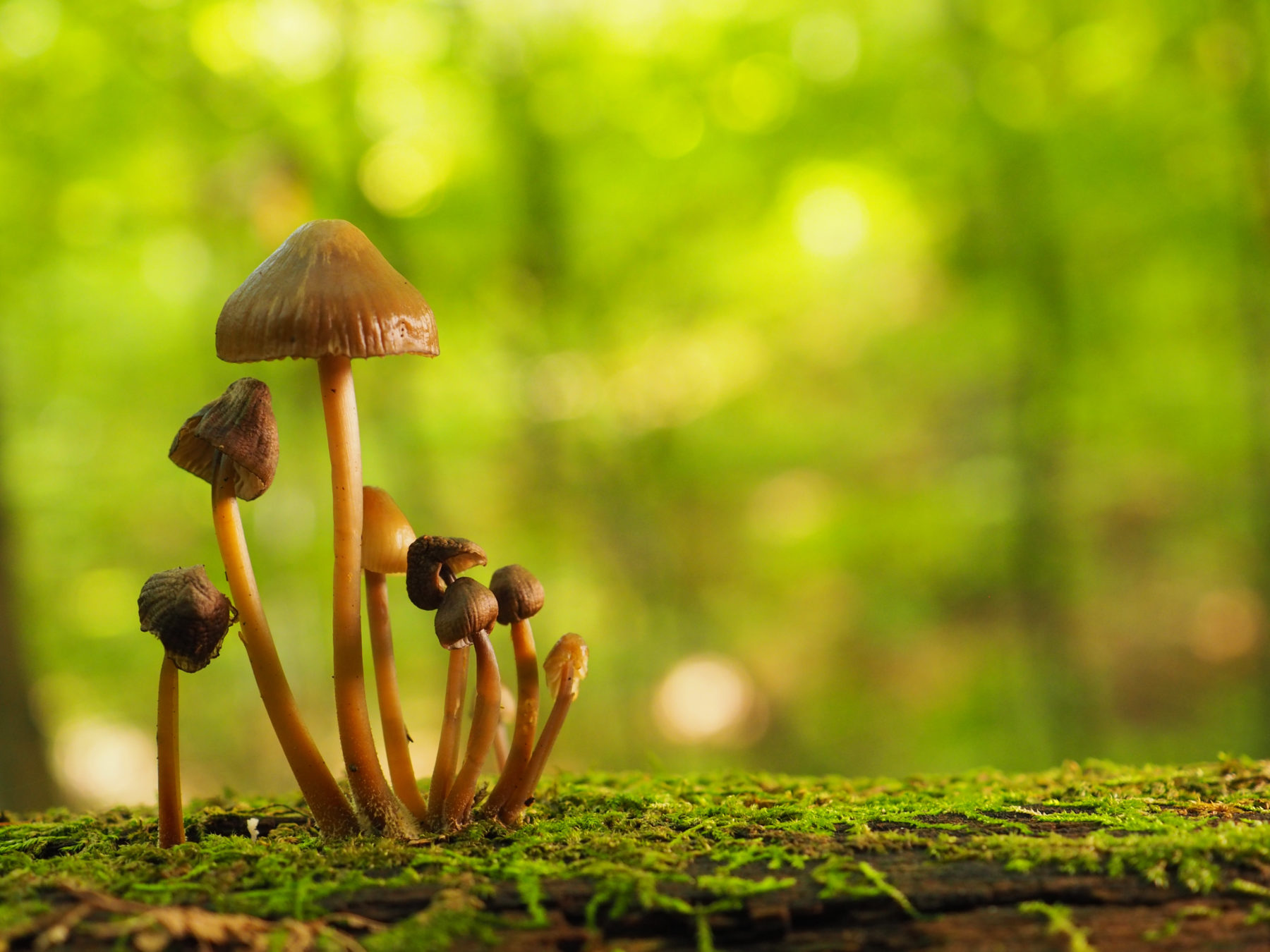Mad about fungus


Meet Joel
Mushroom farmer Joel Orchard is a small grower from the Northern Rivers region of NSW. He grows fungi that he sells to restaurants and retailers, and also mentors young people in sustainable agriculture.
What do you love about mushrooms?
Mushrooms and the world of fungi is so incredibly interesting. They are such an amazing, diverse and useful organism for so many things. We only grow a small number of species of edible mushrooms.but there are also varieties that can do amazing things. In fact, mushrooms are being used to make building materials, medicines, cleaning products, textiles, fuels, packaging and more!
There are mushrooms that are used to clean up oil spills, toxic environments, to prevent animals from getting sick and some that are super important in our soils to help break down organic materials, stabilise carbon storage and help reduce climate change.
What type of farming do you practice?
I’ve tried lots of different types of farming over the last couple of years from vegetables, herbs, flowers, fruits and eggs. Now I’m growing mushrooms – I have an urban farm and at the moment I am making use of a shed at my suburban home too. I produce varieties of oyster mushrooms and mushroom kits for people to grow their own fungi at home. Our production process is quite natural and we use organic inputs and ingredients and don’t need to use any poisons, fertilisers or pesticides.
How did you get involved in micro farming?
I started my small mushroom farm at home when we got locked down at the beginning of covid. I wanted to explore how I could become more food secure at home in my own small backyard. We already grew some vegetables and have chooks for eggs and mushrooms was not something I had tried before. I wanted to do an experiment to see if I could grow my own with simple materials and without a lot of expertise.
I’ve designed a simple set-up that anyone could build with materials from a hardware store. I’m also passionate about being able to grow mushrooms without using single use plastic, so we grow mushrooms in recycled 20L buckets that we can wash and use over and over again.

What’s the best part of your job?
I love watching the mushrooms grow! They start off very small like little bumps and over a few days they grow quickly into all sorts of beautiful shapes and sizes. Mushrooms grow quite quickly once they start and I check them a few times a day. It is super exciting when I grow really big mushrooms – they can get to become well over 1kg each!
What do you love about farming?
I love growing food for people and sharing knowledge about how we can eat and live more sustainably. It is great to hear how much people love the food that I grow and to know that it makes them happy and feel well. I also love the experience of working in harmony with nature and learning about the amazing natural systems of biological ecologies.

How can we support farmers in less industrial spaces?
One of the most important things we can do is buy food that is grown locally. Farmers markets are great and buying food directly from farmers means that there is not a huge amount of wasted energy and resources in transporting fresh products from all over the world. This is because they use complex supply chains, refrigerated trucks and warehouses and then to supermarkets.
Food like this has travelled such a long way! and while it might be cheap, it has cost the earth to get there. Locally grown food is picked when it is perfectly ripe and ready and full of nutrients when we eat it and is so much better for us, the planet and it supports our local economies.
What type of farming would you like to see more practiced?
Farming doesn’t have to damage the environment in which it is produced – in fact farming under the principles of “agroecology” can support many of our ecosystems. If we preserve and protect biodiversity and we can fight climate change by storing CO2 in the soils. It is an amazing science of working in balance with nature to create an ecosystem that supports lots of diversity and species which help reduce pests and disease, builds healthy soil and create really nutritious healthy food.

“I eat so many mushrooms – it’s hard to have favourites. But I do love a creamy mushroom pasta, deep-fried popcorn mushrooms and mushroom steaks in a burger.”
Joel laughs.
Nutritional Powerhouse!
Mushrooms contain Vitamin D – in fact they are tiny little Vitamin D factories. If you take your mushrooms and soak them in the sun with the gills facing up for half an hour or so they will absorb its ultraviolet light. They convert chemicals in mushrooms cells called ergosterol into ergocalciferols (also known as provitamin D2).
Vitamin D is super important for healthy bones, brain health and regulates our moods against depression.




